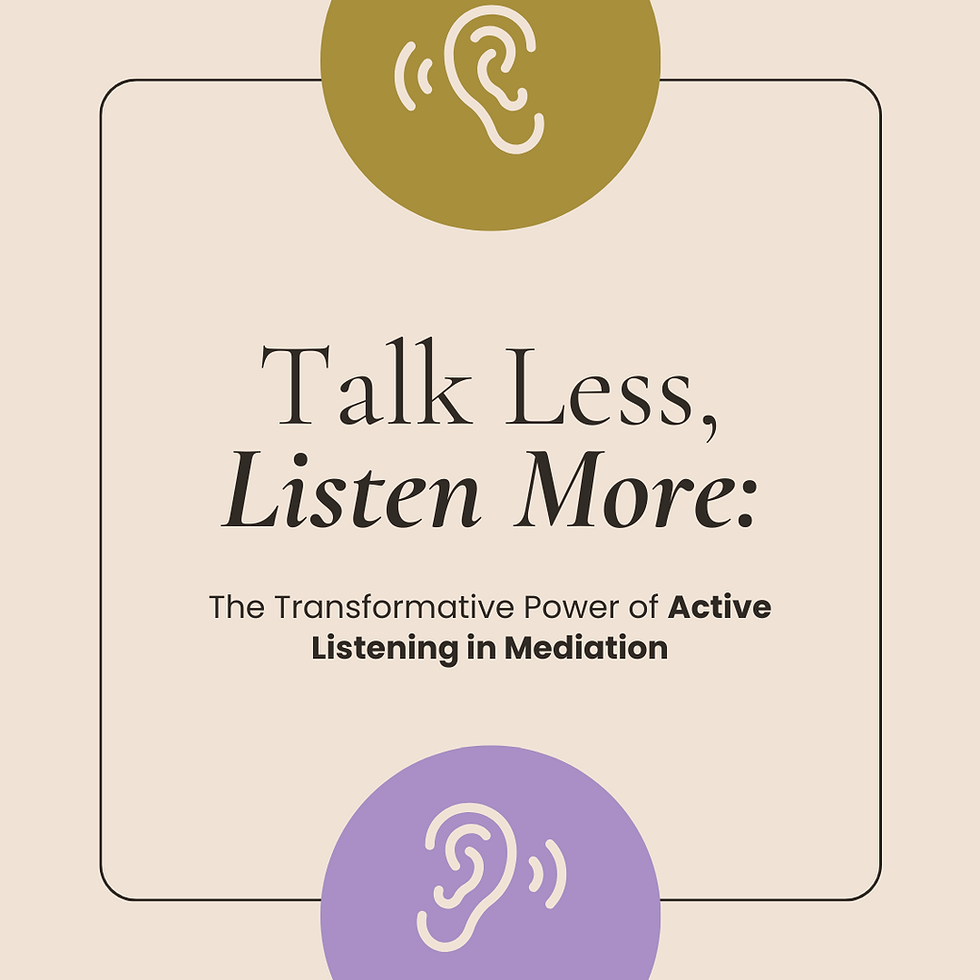Why Every Family Mediator Must Be Trauma-Informed
- Jana de Waal

- Apr 14, 2025
- 2 min read
Family law mediation isn’t just about legal disputes—it’s about navigating deep emotional trauma, power imbalances, and sometimes, very real danger. As a result, being trauma-informed isn’t a bonus skill for mediators—it’s a non-negotiable responsibility.
In a post-ADR-mandate world, where more parties are being required to mediate—even those who may not be emotionally ready or willing—mediators must know how to recognize trauma, respond appropriately, and protect all participants from re-traumatization.
Let’s talk about what being trauma-informed actually means—and why it’s crucial in family mediation.
Understanding Trauma in the Family Law Context
Trauma can present itself in many forms: domestic violence, emotional abuse, coercive control, neglect, or even witnessing conflict as a child. In the mediation room, trauma can show up as:
Withdrawal or disengagement
Hyper-defensiveness or rage
Difficulty concentrating or recalling details
Panic, anxiety, or shutdowns when faced with conflict
And here’s the thing: trauma doesn’t disappear just because the parties are no longer together. In fact, the separation period is statistically one of the most dangerous times for victims of abuse. Nearly half of all victims report an escalation of violence after separation.
Trauma-Informed ≠ Therapist
Being trauma-informed doesn’t mean the mediator is providing therapy. It means:
Recognizing signs of trauma
Respecting each party’s psychological and emotional limits
Structuring the mediation process to avoid re-traumatization
Ensuring safety and balance, even when dynamics are unequal
It’s about creating an environment where every participant can engage meaningfully—without fear, coercion, or emotional overwhelm.
The Children Matter, Too
Mediators must also be trained to recognize signs of child maltreatment—and to distinguish between genuine concern and unsubstantiated accusations made in the heat of a parenting dispute.
If there is reasonable cause to believe that a child may be at risk, the mediator has a legal obligation to report under child protection legislation.
Safety Is the Foundation of Resolution
A trauma-informed approach empowers parties to participate from a place of safety—and that’s the only place where equanimity and resolution can truly take root.




Comments